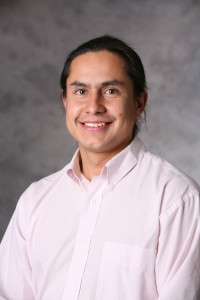
“We have computers that can beat the best human Jeopardy! players, and yet we rely on these relatively weak autopilot systems to safeguard hundreds of people on each flight. Why don’t we add more intelligence to autopilot systems?”
Carlos Varela, an associate professor of computer science at Rensselaer Polytechnic Insitute, asked this question in a recent Science Daily article.
His research aims to improve auto-pilot technology such that errors are caught before they become large scale aviation disasters.
Dr. Carlos A. Varela is an associate professor of computer science, and director of the Worldwide Computing Laboratory at Rensselaer Polytechnic Institute. His current research interests include data streaming, web-based and internet-based computing, middleware for adaptive distributed systems, concurrent programming models and languages, and software verification. Dr. Varela earned his B.S. with honors, M.S., and Ph.D. in Computer Science at the University of Illinois at Urbana-Champaign.
Carlos Varela – Improved Auto-Pilot Technology
Every day we use machines and devices that are loaded with sensors collecting information on everything from outside air pressure and traffic jams to body temperature and heart rate.
We increasingly rely on these sensors as part of real-time automated systems that oversee mechanical functions and monitor our health and safety, but how can we be sure that the vast quantities of data these sensors provide are accurate?
As we saw with the 2009 crash of Air France flight 447, these sensors literally protect lives, and if not detected, a data error can result in tragedy.
My research on dynamic data driven modeling and instrumentation, uses established mathematical relationships between different data streams to monitor incoming data and detect errors. In the case of flight 447, the groundspeed and wind speed data– which was available from onboard GPS monitors, and weather forecasts — could have been used to catch erroneous air speed readings coming from malfunctioning pilot tubes.
If the relationship is clear, and there are many examples in our current technology where it is, our active data monitoring approach embodied in our PILOTS programming language and software is an excellent way to catch and correct errors before they become a problem, and ensure continued safe use of technology that relies on accurate data.
In our 21st century information-oriented society, detecting error signatures and automatically correcting for erroneous data will help us build safer and more robust computer systems.
Read More: Enhanced autopilot system could help prevent accidents like 2009 Air France 447 crash

Comments
2 responses to “Carlos Varela, RPI – Improved Auto-Pilot Technology”
This seems like a good idea, indeed such a good idea that I wonder why it hasn’t been done before. There are multiple data sources and multiple ways to navigate airplanes these days — we’ve seen that even satellites have some (limited) ability to track planes such as that Malaysian airliner that disappeared. It would seem that autopilots should rely on multiple sources, as Prof. Varela has done.
Asking questions are in fact nice thing if you are not understanding anything entirely, except
this post gives good understanding even.